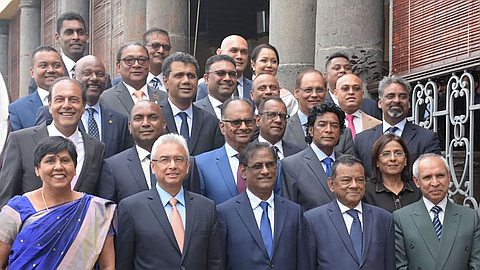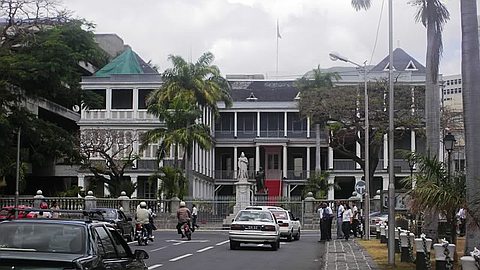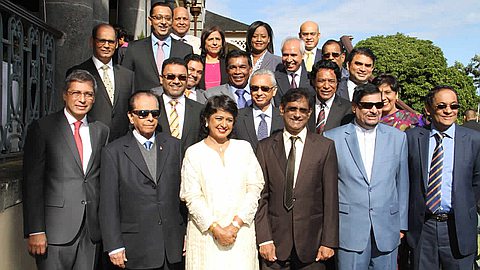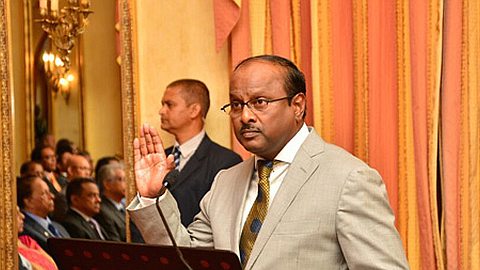NTC: The Domino Effect!
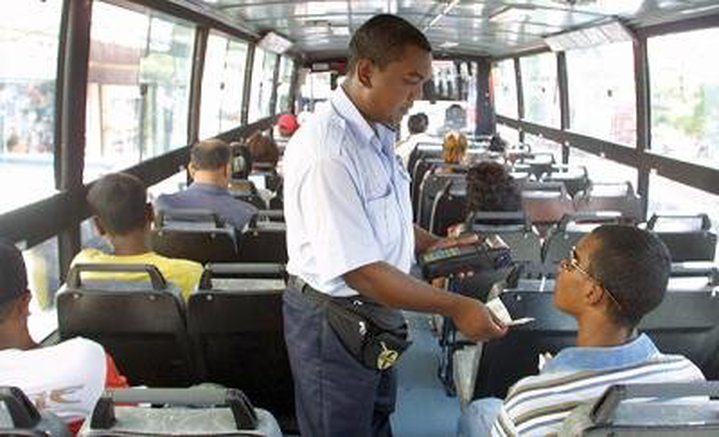
The decision in fourth gear the government to increase by 12% the bus ticket from next Thursday causes complaints not only among the traveling public but also in the private sector, the Joint Economic Council (JEC). Employee unions in transit also denounced the government's decision. Earlier this week, an agreement in principle was reached about a 19% salary adjustment for employees of the National Transport Corporation (NTC) as employees of other operators in transit are not concerned.
At last, no bus company was not present details of new bus fares, which will apply from Thursday. The indications are that in all probability it will be only tomorrow that the National Transport Authority (NTA) officially communicate the new bus fares with the disappearance of adult ticket of Rs 10 for the shortest route. Other transportation companies that will benefit from this "financial manna from the Council of Ministers on Friday," are waiting for a decision if they will also apply the 19% wage increase to their employees.
Subsidies up
One of the first consequences of this rate increase is that the government will revise upward the subsidies to the bus companies under the program of free transport for students and seniors. The budget of Rs 982 million allocated to the Ministry of Public Infrastructure and Transport to this item will in no way sufficient. The new financial package will be Rs 1.1 billion, if not more for the government.
The private sector operators will also provide additional financial resources to ensure the repayment of the Travelling employees. This new burden in operating costs is not welcome in a business environment affected by the economic crisis with the Joint Economic Council (JEC) amount niche for pillory management parastatal body in general and the contagion effects in other economic sectors, whether in terms of price or wage demands.
Contagion
"It is an undeniable fact that the main parastatal body, they are in transit, as the NTC in the port, in this case the Cargo Handling Corporation, or public utilities, including water and electricity and even the MBC, marked by weaknesses in terms of management, are buffeted by tensions in terms of industrial relations with High Spill Overs "do we understand media allowed the JEC. "In terms of quality of services and Pricing, the example of the NTC remains a classic.
This 12% increase is the result of inefficiency in the parastatal body, the NTC is a glaring example. Subsequently, these contagion effects whatsoever for the bus ticket or pay revision extend to other economic spheres, "says one in the private sector environments. The Deputy Prime Minister and Minister of Public Infrastructure, Anil Bachoo, filed through the library of the National Assembly Parliamentary answer, paints an unflattering review of the financial operations of the NTC.
At June 20, the NTC arrears of Rs 409.1 million on the repayment of loans with a government guarantee. Of this amount, the unpaid interest is Rs 255 million while capital outstanding is still the same as in June 2005, Rs 154.1 million. In 2009, the NTC got another government loan of Rs 40 million with interest rate of 5% annually.
"This loan HAD Become Necessary due to the precarious financial position the NTC was in at That Time," reveals Anil Bachoo, adding that an amount of Rs 16 million will be paid in two instalments mandatory in June 2014 and 2015.Unfinished Reform Agenda The NTC, which employs 2188 people, including 2074, governed by the terms of the National Remuneration Board (NRB), also borrowed from commercial banks.
On 31 May, the bank debt stood at Rs 334.7 million. In April 2005, the NTC loans from commercial banks were only Rs 82.2 million. Unlike loans guaranteed by "the National Transport Corporation is servicing all its Non-Governmental loans" government. The JEC returned to the charge with the fact that the restructuring and reordering parastatal body should be the Unfinished Reform Agenda of the day. "'We have a compelling example. Take the case of the telecommunications industry, which has seen the reform. The contribution of telecommunications to the economy is 7% of GDP, while the annual growth between 14% and 8.3%. Moreover the cost of telecommunications is down. The reform of the parastatal body in strategic sectors is inevitable to offer new economic opportunities, "says one in the private sector.
UBIW: GWF: "An irrational decision of GM
"Ashok Subron, negotiator Bus Industry Union of Workers and the General Workers Federation (GWF), criticizes the government's increasing by 12% the bus ticket. He argues that this decision is more irrational given the profits made over the last two years. "Ministers Bachoo Mohamed and want to use transit employees as scapegoats to justify this increase in bus fares. We challenge the amalgam is trying to do these two ministers.
The government's decision is irrational because it is a fact that many operators, including Triolet Bus Service, made profits of Rs 62 million and Rs 42 million during the past two years, "he says. "The increase decided by the Cabinet seems to be driven more by the need to satisfy donor parties in power than anything else. The government should have taken the decision to build a new NTC Management following the crisis of maladministration and shenanigans serving Vested Interests, whose population has witnessed. It was clean from top to bottom of the leadership of the NTC, "insists the union, adding that "desizyon kavbine minis li expoz ène mové move politik transpor, dan kontext kriz ekolozik ek problem konzesyon larut"
Public sector paid this month
New salariesThe nouveax salary scales, from the report of the Pay Research Bureau (PRB) 2012 and Errors, Bugs and Errors Committee, chaired by Dev Manraj, Senior Adviser to the Prime Minister's Office, are paid to officials at the end of month . Adjustments recommended by the Committee Manraj were paid retroactively from 1 January effect.
At the end of Manraj report, the officers and employees of parastatal bodies touching in December last year monthly salaries ranging between Rs 7496 and Rs 8294 receive an additional adjustment of Rs 1175 on the revision given by the PRB . The average increase for these officials, and PRB Manraj committee included, is 20%. Those whose salaries December last year were in the range of Rs 9122 to Rs 56,420 invariably get an adjustment of Rs 590 per month with the implementation of Manraj report. The percentage of wage revision with the combined effects of the recommendations of the two reports, ranging from 13.35% to 22.28%.
Jayen Chellum, president of PMAC: "Unacceptable that blow on the head of consumers'
"This is the first time a bus ticket was triggered by an accident causing a tragedy. At the National Transport Company (NTC), the government has decided, for reasons unknown, allocate routes to private companies. This has inevitably resulted in a trade union action. In the process, a wage revision was claimed. It should be recalled that the Sorèze fatal accident was caused - if we rely on the statements of the former president of the NTC, Ashwin Dookun - by bus strictly prohibited in India, but redeemed by political interference in Mauritius . All of these sequences resulted in the increase of bus fare when no financial statement has been filed. There is also not a moral balance for the deaths of ten people or if a Commission of Inquiry was established. The government, with the complicity of the Mauritius Broadcasting Corporation (MBC), would have us believe that this increase is inevitably the result of the wage increase granted to employees of the NTC, when in fact it is due to mismanagement. It is, therefore, a real blow to the head of the consumer and that is simply inevitable! "
Dr. Sidharth Sharma, managing director of RHT: "We must fight taxis brown"
Dr. Sharma, managing director of Rose-Hill Transport, said that the cost of transport is controlled by the government and he has no choice market that comply. But, he says, as 10 to 15% of the most profitable routes are potentially threatened by unscrupulous taxi brown, it would be better to fight them.
